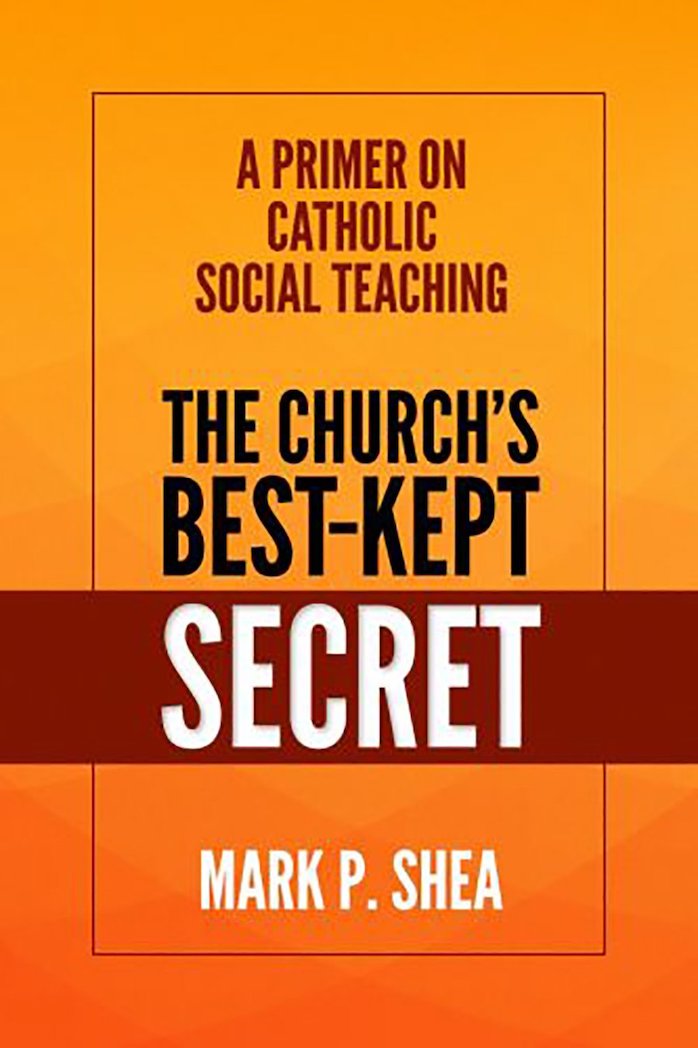“The Church’s Best-Kept Secret: A Primer on Catholic Social Teaching” by Mark P. Shea. New City Press (Hyde Park, New York, 2020). 160 pp, $16.95.
Like papal encyclicals and the documents of the Second Vatican Council, Catholic social teaching is part of the deposit of faith sometimes referenced by people who might not have an adequate understanding of it.
Mark P. Shea notes that it might be the church’s best-kept secret not because the church has hidden it, but because “the Gospel is eternally at cross-purposes with all those voices in our culture that are so much louder than the church.” He continues, “So we are taught by our culture to ask, ‘Is it political, progressive, conservative, spiritual, left, right, modern, ancient?’ but not, ‘Is it in accord with what Jesus taught?'”
He asks readers to set aside those “clamoring voices” as they study “the four notes forming a single chord”: dignity of the human person, the common good, subsidiarity and solidarity. He devotes two chapters to each.
One should not equate primer with easy or quick. Rather, consider it the first four, sometimes difficult steps in exploring and learning about Catholic social teaching. By blending Scripture references with the writings of saints and the popes, Shea provides readers enough traction with which to take those steps.
Along the way, readers may find themselves challenged, and even in disagreement with what Shea posits. For example, in a chapter on the dignity of the human person, he writes: “Poverty, in fact, is the No. 1 abortifacient. A living wage is crucial to our dignity and to the foundation of families.”
In a chapter on subsidiarity, he writes: “And since we are material creatures who express our love and the grace of God through material means, each person should be able to own property so that each person has something to share with others.”
Some might wonder if a small book on a topic as vast as Catholic social teaching is an example of a little knowledge being a dangerous thing. The opposite is true. What Shea provides should pique the readers’ interest to learn more about this teaching. To assist readers in that quest, he provides various literary and video resources.
While enlightening for the individual reader, “The Church’s Best-Kept Secret” is even better for adult faith formation and discussion. That formation/discussion will be aided by the three questions he asks at the end of each chapter, e.g., “What is the distinction between charity and justice?” and “How does the Gospel challenge us to confront both our personal sins and the structures of sin we build?”
Because of the different perspectives that participants might bring to the discussion, it is imperative that the person facilitating it be able to exercise prudent leadership in order to lower the volume of “clamoring voices” so that the group might benefit from what others share.

